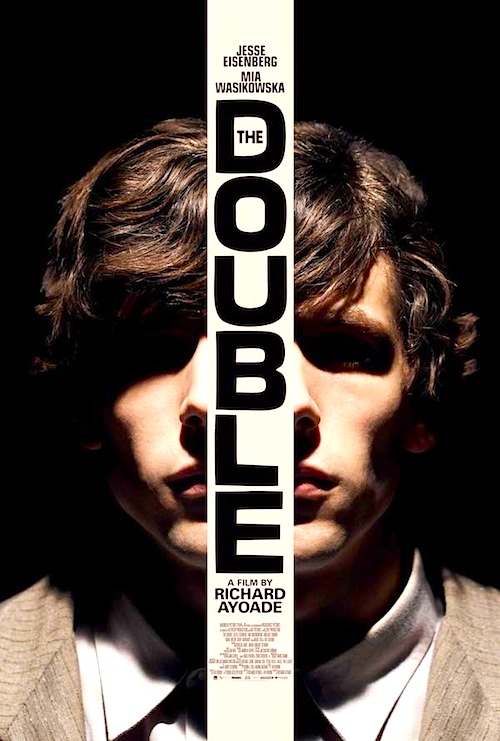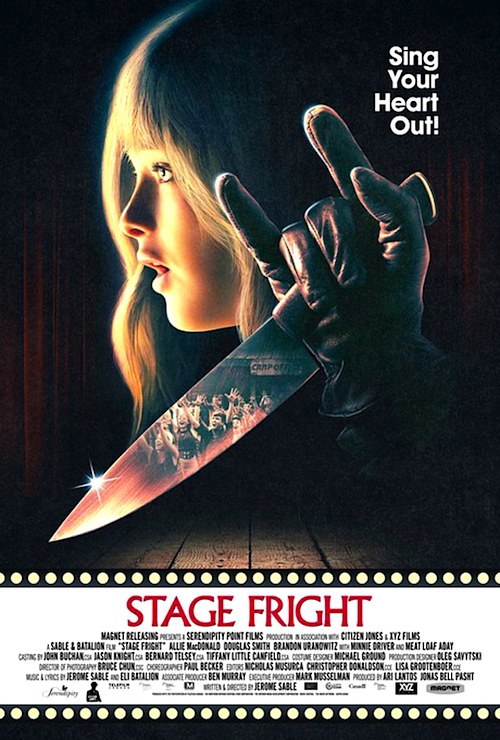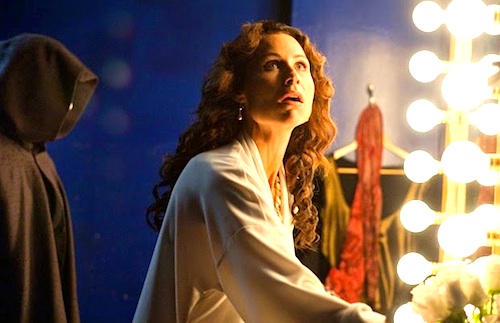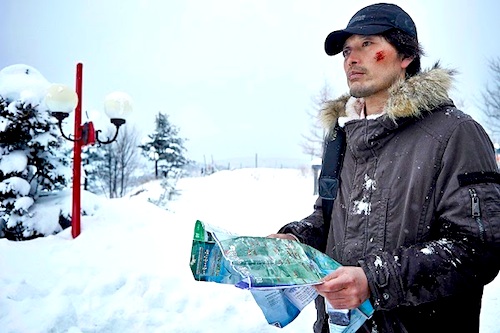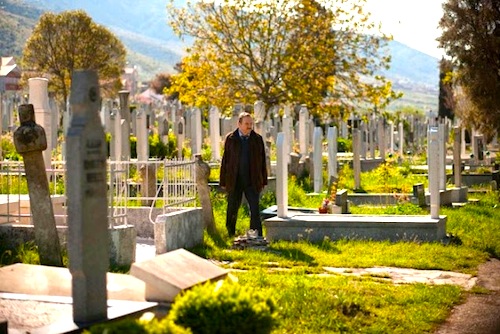By Joe Bendel. Think of it as a Sixteenth Century Game of Thrones without the fantasy elements. For first act starters, viewers will meet a queen engaging in truly eyebrow-raising affairs and witness a bloody wedding massacre. France’s religious wars vividly rage in a new 4K restoration of Patrice Chéreau’s Queen Margot director’s cut, which opens this Friday at Film Forum.
Marguerite de Valois is Catholic, but you would hardly know it from her behavior. Notorious for her indiscretions, Margot is less than thrilled with her arranged marriage to the Protestant Henry de Navarre. Supposedly, their union will bring peace in their time, but nobody really believes that—least of all Navarre. Although he has tacitly agrees not to pursue consummation, he visits her on their wedding night anyway, hoping to forge an alliance. Frustrated by the encounter, Margot secretly leaves the palace, seeking a masked distraction. She finds it with La Môle, a destitute young Huguenot with a distant family connection to King Charles IX’s Protestant military advisor.
A mere six days after the ceremony, as Paris sleeps off its revelries, a sudden crisis culminates in the St. Bartholomew’s Day Massacre. Ostensibly ordered by the submissive King, the deadly business is planned by Margot’s mother, Catherine de Medici, and executed by her ambitious brothers. More out of defiance than principle, Margot manages to save both her husband and her lover, but becomes a de facto prisoner of the palace as a result. Much intrigue will follow.
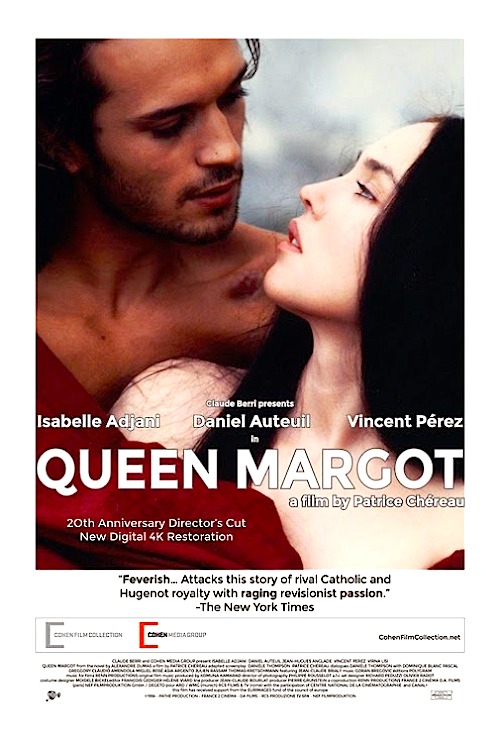 Queen Margot is one of the great modern historicals. This is not a polite drawing-room story of men in tights and women in ruffled collars. While boldly operatic in sweep, Chéreau has an eye for grimy naturalistic details. He also serves up generous helpings of blood and sex. Twenty years later, his St. Bartholomew’s Day sequence remains an overwhelming example of bravura filmmaking. As sheer spectacle, it is an orgiastic maelstrom of confusion and violence that has yet to be equaled on-screen.
Queen Margot is one of the great modern historicals. This is not a polite drawing-room story of men in tights and women in ruffled collars. While boldly operatic in sweep, Chéreau has an eye for grimy naturalistic details. He also serves up generous helpings of blood and sex. Twenty years later, his St. Bartholomew’s Day sequence remains an overwhelming example of bravura filmmaking. As sheer spectacle, it is an orgiastic maelstrom of confusion and violence that has yet to be equaled on-screen.
Although a good twenty years older than the young Margot, Isabelle Adjani still looks the part, rocking the low cut wardrobe and scorching up the screen during her love scenes. Ironically, she has better screen chemistry with Daniel Auteuil as her (mostly) platonic husband Navarre than Vincent Pérez’s La Môle. Similarly, Pérez comes across somewhat boy-toyish when playing opposite her, but his scenes with Claudio Amedola as Coconnas, his sworn Catholic rival, crackle with heat and archetypal significance.
When Queen Margot was originally released, the shockingly serpentine-looking Virna Lisi received the lion’s share of the film’s award attention—and she is rather chilling. Yet, in retrospect, the young Asia Argento often steals the show as Charlotte de Sauve, one of de Medici’s spies, who falls in love with her target: Navarre.
As is sometimes the case, Queen Margot is better cinema than a French history lesson. When adapting Dumas père’s fictionalized novel, Chéreau and co-writer Danièle Thompson frequently chose to print the legend rather than the fact. If you want dry dates and details, google the characters. For those who prefer to sink their teeth into a big, lusty, pungent costume drama, the restored director’s cut of Queen Margot opened today (5/9) in New York at Film Forum.
LFM GRADE: A-
Posted on May 9th, 2014 at 11:59pm.
